Latin America’s Rightward Shift Continues In Honduras
Honduras’ newly elected president, Nasry Asfura of the conservative National Party, was sworn in on January 27, 2026. The election, held on November...
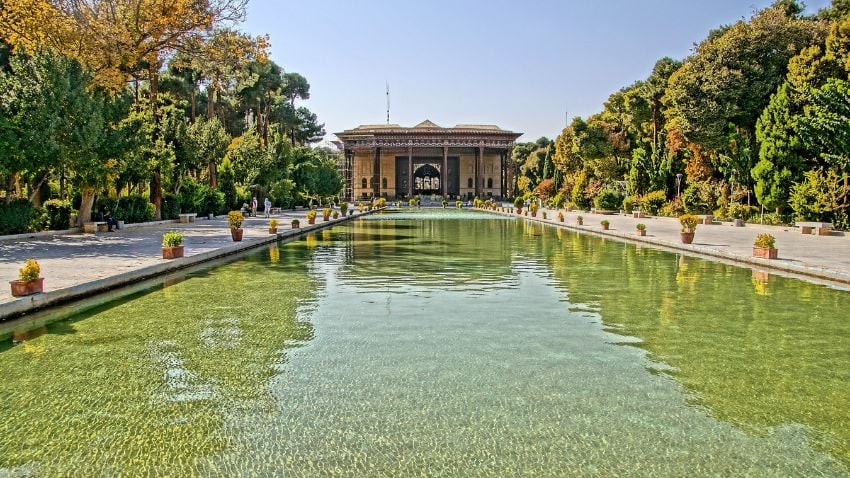
6 min read
Have you ever found yourself caught up in the mysterious acronym of 'SEZ'? Well, you're not alone. A quick dip into the world of economics, and suddenly, we're surrounded by these elusive three letters. But what do they stand for? What is the SEZ? What magic do they bring to economies around the globe?
In a nutshell, SEZ is short for Special Economic Zones - areas within countries where business laws differ from the rest of that country. It's like giving businesses their own little playground with its unique rules!
This article will take you on a journey through this SEZ - exploring China's domination in this landscape, how Honduras navigates autonomous zones and Iran’s surprising stance on SEZ approval.
So, buckle up! We're about to embark on an enlightening adventure through the world of Special Economic Zones.
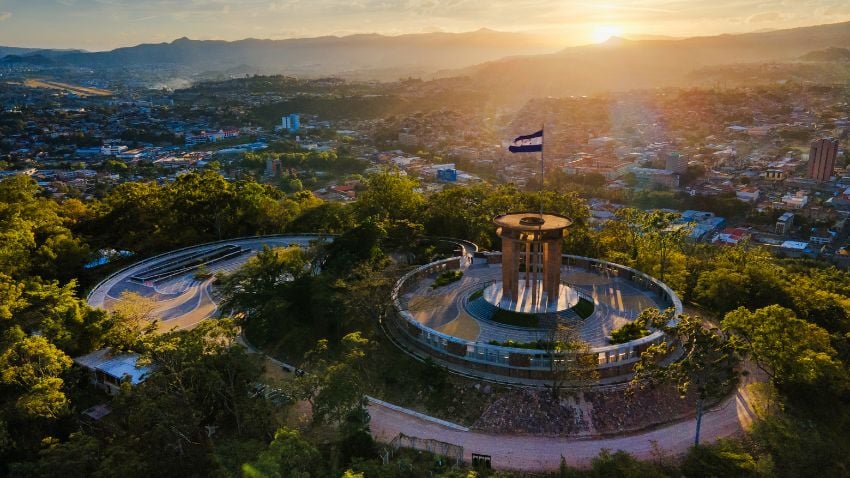
Tegucigalpa, Honduras
When it comes to global economic strategies, one tool that nations often use is establishing Special Economic Zones (SEZ). Around the world, more than 70 countries have embraced SEZs, which are a major factor in influencing their economies.
Akin to VIP lounges at airports, these zones are exclusive areas within a country where business rules differ from the rest. But why do countries go through all this trouble? The answer lies in their potential benefits and goals.
Countries create SEZs mainly for two reasons - attracting foreign direct investment (FDI) and stimulating rapid industrialization. It's like rolling out a red carpet for businesses with perks such as lower taxes, fewer regulations, improved infrastructure facilities and more freedom on trade tariffs and quotas. This has proven effective; several developing nations have witnessed impressive growth rates after implementing SEZ policies.
If you're wondering how these magical wealth-generating regions work, think of them as mini-cities operating under different rules than the rest of the country.
In terms of governance models, some are state-owned, while others may be jointly managed by public-private partnerships. Regardless of who manages them, the focus is always on creating an enabling environment for businesses to thrive. Economic activities can vary widely between different zones, too - manufacturing heavyweights China & India tend towards industrial clusters, while Dubai's free zone focuses primarily on services sector development.
Remember: No one size fits all. Each nation customizes its own set based on local context & developmental objectives. This makes each SEZ unique in its functioning and benefits.
Now that we've peeled back the layers on SEZ, it's clear they are more than just zones. They are strategic tools for economic development - dynamic ecosystems designed to accelerate growth and boost prosperity. In fact, they're akin to catalysts that ignite innovation and foster a culture of competitiveness.
Special Economic Zones (SEZs) are strategic tools for economic development used by over 70 countries to boost growth and attract foreign investment. These zones offer businesses perks like lower taxes and fewer regulations, acting as catalysts that ignite innovation and competitiveness. They're tailored to local context & developmental objectives - no two SEZs are the same.
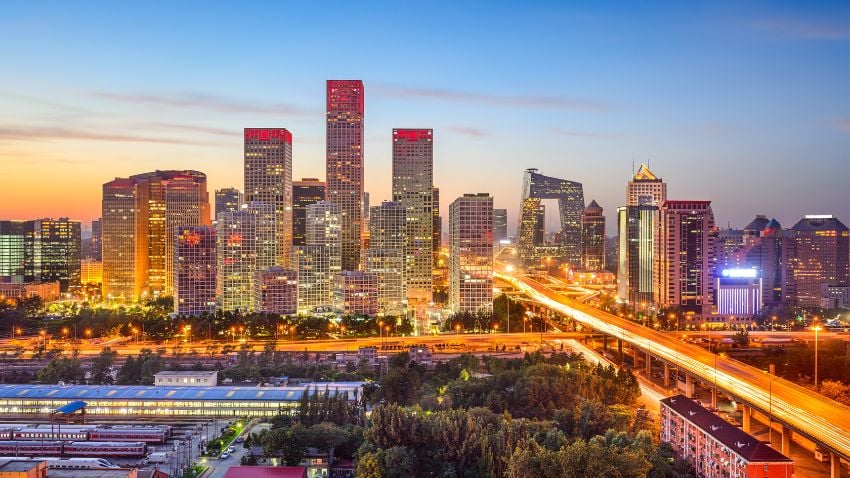
Beijing, China
The story of China's economic transformation is intrinsically linked to its use of Special Economic Zones (SEZs). These zones have been a game-changer, serving as incubators for market-oriented reforms.
It may surprise you to learn that over 90% of Chinese municipalities boast either an SEZ or a similar zone. That's right, nine out of ten. It’s like finding a pub on every corner when walking through London streets – nearly unavoidable.
This widespread establishment was not by accident but part and parcel of China's strategic planning. The country started using these areas to test new policies and approaches before rolling them out nationally.
World Bank reports show how this approach has enabled dynamic growth within individual regions while mitigating potential risks at the national level. This way, if something didn’t work quite as expected, only one small area took the hit rather than affecting all businesses across mainland China – pretty clever thinking, if you ask me.
You might be wondering about how effective these zones were. Well, since their SEZ approval, they’ve contributed significantly towards shaping today’s global powerhouse known as 'The People’s Republic.' As different from night and day compared with just four decades ago.
In essence, think about these SEZs as economic 'Petri dishes'. The zones let China experiment with different economic models and business-friendly policies. It's like having a practice arena where you can try out your strategies before taking to the major stage.
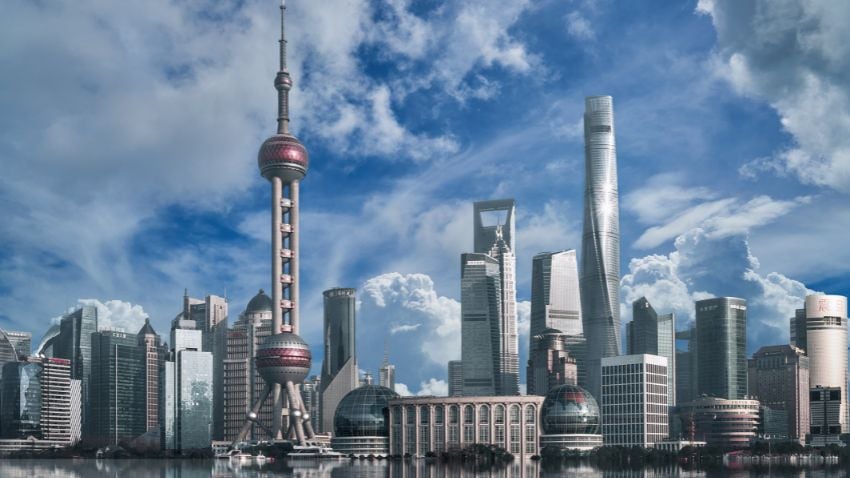
The SEZ let China experiment with different economic models and business-friendly policies
The potential benefits of SEZs are varied and can be advantageous for businesses. Let's explore these benefits, starting with the fiscal incentives they offer.
One major benefit offered by SEZs is financial in nature. Businesses operating within these zones often enjoy lower taxes compared to those outside the zone. This can be a boon for companies striving to maximize their earnings.
In addition to tax breaks, import tariffs are also usually reduced or even eliminated entirely within an SEZ. Lowering or eliminating import tariffs within an SEZ makes it easier and more cost-effective for businesses to source materials from abroad, aiding their competitiveness.
It’s worth noting that not all countries offer the same fiscal incentives; each nation tailors its offerings based on its own strategic objective. The key takeaway here? It pays off—literally—to do your homework before setting up shop.
Apart from monetary gains, another huge advantage comes through regulatory simplification within these areas. Governments frequently cut red tape and streamline regulations as part of their efforts to attract investment into an SEZ.
This means less paperwork, quicker approval times and fewer hoops to jump through overall—a breath of fresh air if you've ever tried navigating traditional bureaucratic mazes. It lets firms focus more on what they do best: running successful operations without unnecessary administrative distractions slowing them down.
Lastly, I must highlight that these zones don't just create new markets. They also pave the way for businesses to connect with untapped consumer groups and broaden their horizons.
SEZs also create opportunities for businesses to connect with new markets and untapped resources. This offers a significant advantage, letting companies expand their horizons while boosting growth potential.
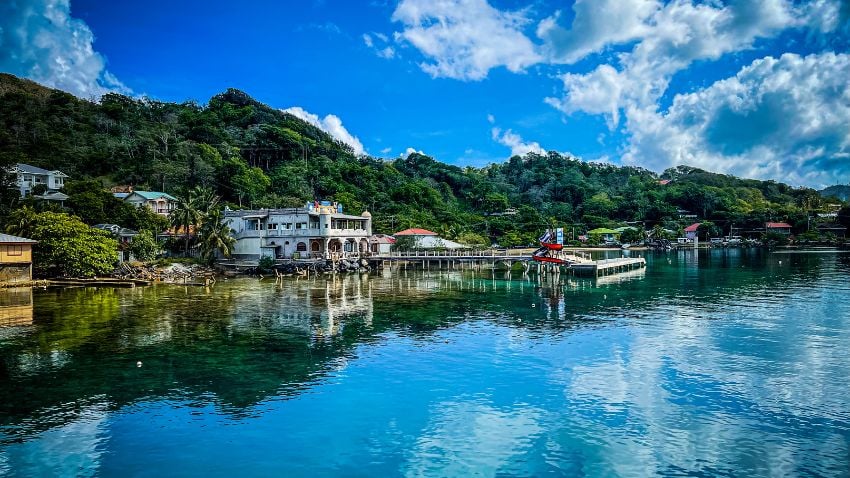
Honduras is home to three autonomous zones with attractive benefits like lower taxes and relaxed regulations
Honduras is a unique player in the realm of autonomous zones. Unlike many other countries, it has three functioning autonomous areas: Prospera, Morazan, and Orquidea.
The concept behind these regions is intriguing. The notion was to establish an area with its own rules and management structure distinct from the remainder of the nation's legal system.
Firstly, let's talk about Prospera. This zone aims to be a hub for tech businesses by offering streamlined regulations and lower taxes that attract international companies looking for innovation-friendly environments.
Moving on to Morazan, this region seeks economic growth through agriculture. With fertile lands at their disposal, they hope to increase exports by providing local farmers with better infrastructure and access to global markets.
Last but not least comes Orquidea. This mountainous area boasts stunning natural beauty, which it uses as leverage for developing eco-tourism initiatives while preserving local cultures and traditions.
All might sound rosy so far, but navigating autonomy isn't without its challenges. For instance, even though constitutional protections are set up for these zones - political resistance persists.
Furthermore, concerns regarding land rights disputes have arisen primarily because residents feel their voices are not being heard in the decision-making process. This can create tension and hinder development efforts.
Another significant challenge is attracting investment. These zones need funds to build infrastructure, improve education, healthcare services and much more. Despite offering attractive incentives like lower taxes or eased regulations, securing investments isn't always a walk in the park.
Honduras is home to three autonomous zones - Prospera, Morazan, and Orquidea. Each has its unique focus areas, from tech innovation to agriculture and eco-tourism. Despite attractive benefits like lower taxes and relaxed regulations, they face challenges, including political resistance, land rights disputes and attracting necessary investment.
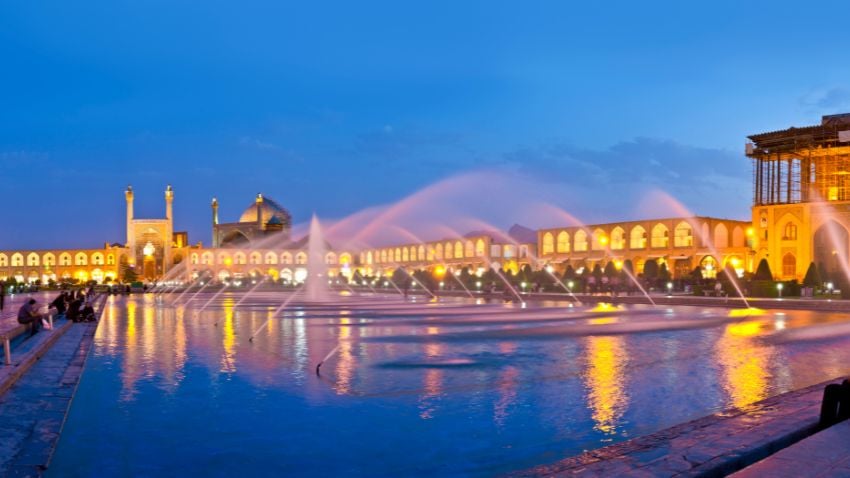
Isfahan, Iran
On reflection, Iran may not be the initial nation that comes to mind when considering free-market economies. Let us put aside preconceptions and explore the fascinating facts of Iran's free market economy, including its multiple special economic landscapes. Not only does Iran boast a flourishing free market system, but it also houses numerous special economic zones (SEZs).
These SEZs are areas where business and trade laws differ from the rest of the country, typically with an aim to increase foreign investment or enhance economic activity.
The journey towards establishing SEZs in Iran started back in 1999 when their government realized the potential benefits these zones could bring. These include boosting industrial growth, creating jobs and attracting foreign direct investment (FDI).
To facilitate this growth strategy further, various incentives were offered, such as tax exemptions on imported goods intended for production within these zones.
Intriguingly enough, there is no shortage of examples when it comes to successful Iranian SEZs - two standout ones being Kish Island and the Qeshm Free Trade Zone.
Kish Island: Known as a consumer paradise due to its duty-free status, Kish Island is more than just a haven for shoppers. The zone provides investors with remarkable advantages like exemption from corporate taxes for up to 20 years. You read that right - Two whole decades.
Taxation holidays;
Simplified administrative procedures;
Freedom to bring in foreign capital and profits.
Qeshm Free Trade Zone: This zone offers an even wider range of benefits for businesses. Apart from similar perks as Kish Island, it also gives access to a skilled labour force at competitive costs.
Tax-free imports and exports;
You won't need a visa.
It's a clear signal of Iran's commitment to open its doors wider for international trade and business partnerships. With the SEZs' enticing benefits, it’s no surprise that more businesses are considering setting up shop in these zones. Indeed, the future looks promising for those who choose to invest here.
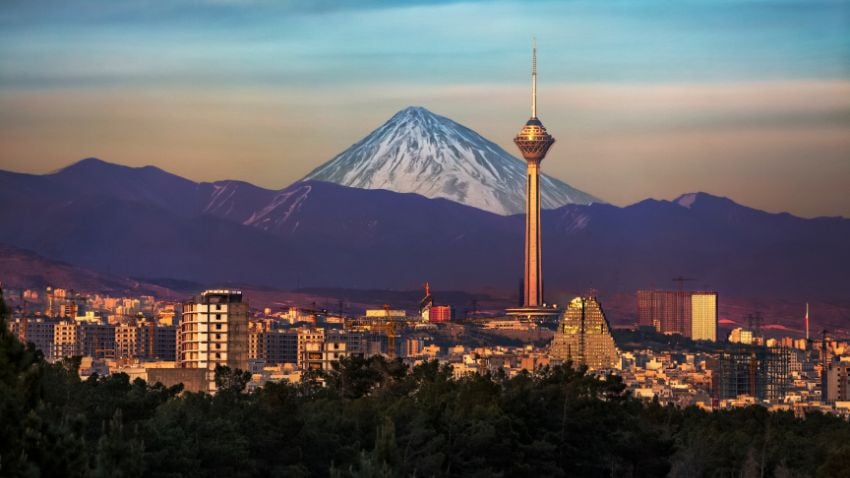
Milad Tower, Tehran, Iran
And there we have it - a comprehensive guide to the world of SEZs. You've discovered that the 'SEZ' stands for Special Economic Zones, areas where business rules are unique and designed to foster economic growth.
The common thread? These regions all harness the power of fiscal incentives and regulatory simplifications to attract businesses. We can only hope to see more and more of these spring up around the world.
If you want the best intel from the expat world, including profitable offshore opportunities, little-known tax-saving strategies, and hard-won insights on immigration, passports, and Plan-B residencies, all delivered to your inbox every single week, then join our daily correspondence, EMS Pulse®. Currently enjoyed by over 84,000 expats and expat-hopefuls worldwide. Fill in the form below to join our newsletter free:

Written by Mikkel Thorup
Mikkel Thorup is the world’s most sought-after expat consultant. He focuses on helping high-net-worth private clients to legally mitigate tax liabilities, obtain a second residency and citizenship, and assemble a portfolio of foreign investments including international real estate, timber plantations, agricultural land and other hard-money tangible assets. Mikkel is the Founder and CEO at Expat Money®, a private consulting firm started in 2017. He hosts the popular weekly podcast, the Expat Money Show, and wrote the definitive #1-Best Selling book Expat Secrets - How To Pay Zero Taxes, Live Overseas And Make Giant Piles Of Money, and his second book: Expats Guide On Moving To Mexico.

Honduras’ newly elected president, Nasry Asfura of the conservative National Party, was sworn in on January 27, 2026. The election, held on November...

For a growing number of Americans, cost-of-living math no longer works. Housing feels harder to reach, everyday costs keep climbing, and long-term...
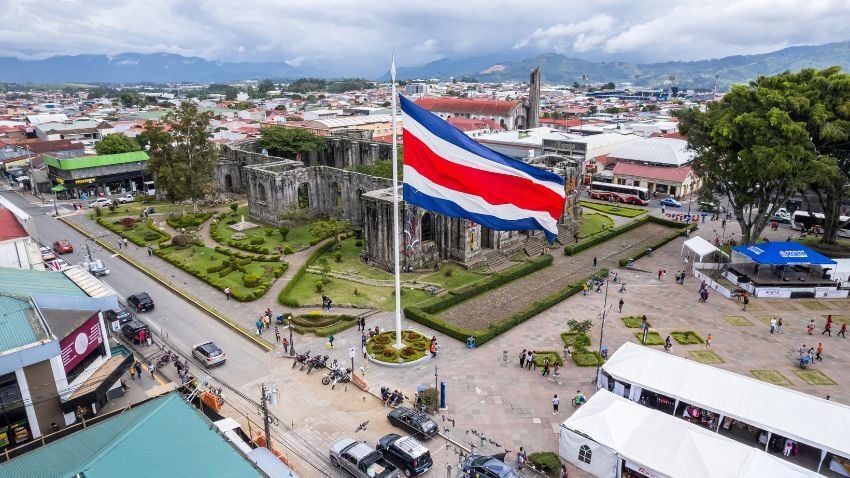
Costa Rica has become one of the most popular expat and digital nomad destinations in Latin America, known for its natural beauty, relaxed lifestyle,...